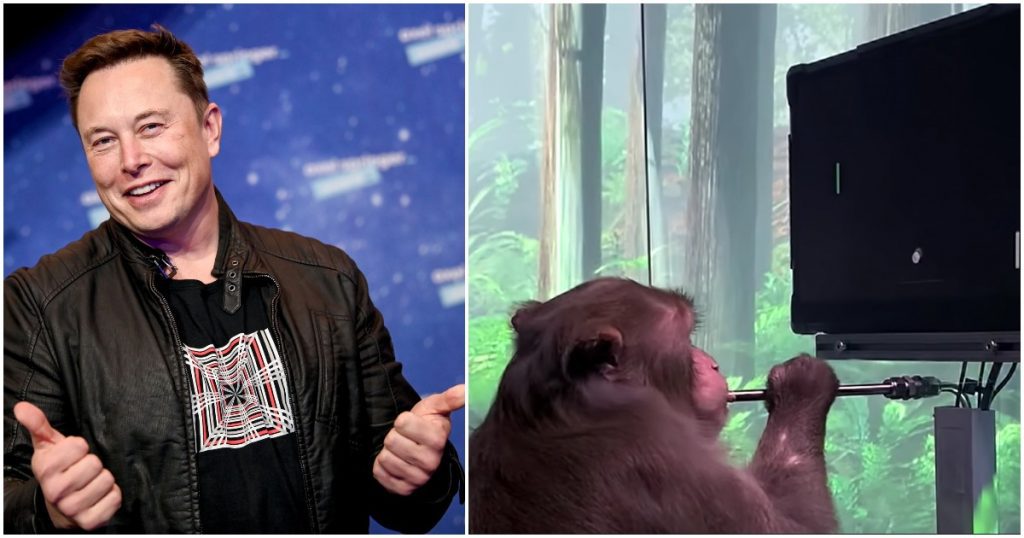When Elon Musk had first announced a startup which would help interface human brains with technology, and ultimately allow humanity to seamlessly fuse us with artificial intelligence, not many had taken him seriously. But it now turns out that Musk wasn’t monkeying around.
In an extraordinary tech demonstration, Elon Musk’s startup Neuralink has shown that it can now let a monkey play the arcade game Pong with just its mind. Neuralink first implanted its electrodes into the brain of the money, Pager, through a surgical procedure. The company then trained Pager to play a simple computer game, in which he had to move a dot towards a moving square using a joystick. By giving him a banana, the team was able to train Pager to use the joystick and move the dot towards the square on the screen.

That’s when things got interesting — using their implant, Neuralink recorded Pager’s brain impulses as he moved the dot, and recorded which neurons fired when he moved the joystick up, down, and so on. Once Neuralink knew which neurons fired based on the direction Pager was moving the joystick, they unplugged the joystick, and allowed Pager to keep playing the game. Even though the joystick was unplugged, Pager was ‘thinking’ about moving the dot towards the square, and Neuralink was able to detect which of his neurons were firing as he played the game. They programmed the game to react to those brain impulses instead, and incredibly, the even though the joystick was removed, Pager was ‘moving’ the dot towards the square with just his mind.
But the demo got better — Neuralink did the exact same thing while Pager was playing the arcade game Pong, and it was able to read his brain impulses in real time, and then play the game seamlessly. It looked like something out of a science fiction movie, but it was completely real — a monkey was playing a computer game using just his brain.
This isn’t the first time that Musk has shown off its implant-powered animals. Last year, Neuralink had paraded two pigs, and their systems could detect when the pigs’ snouts approached a surface. Back then, Neuralink had also been able to predict the position of a pig’s limbs by merely reading the electrical impulses in its brain.
But letting a money play a computer game with its mind is certainly a big leap in just six odd months, and will likely draw even more attention to what Musk’s latest venture is up to. Neuralink says that the immediate use of the implant in humans could be to help those with severe brain and spinal cord injuries, but the possibilities of such an implant could be endless. The implant can communicate with a mobile phone through Bluetooth, and companies could eventually write apps on it. Through an app, the implant could simulate feelings in users, help them store and play memories, and, like Pager showed, could be extensively used in gaming. Elon Musk has opened up a brave new world, and if Musk’s latest demo was any indication, Neuralink could end up changing humanity as we know it.